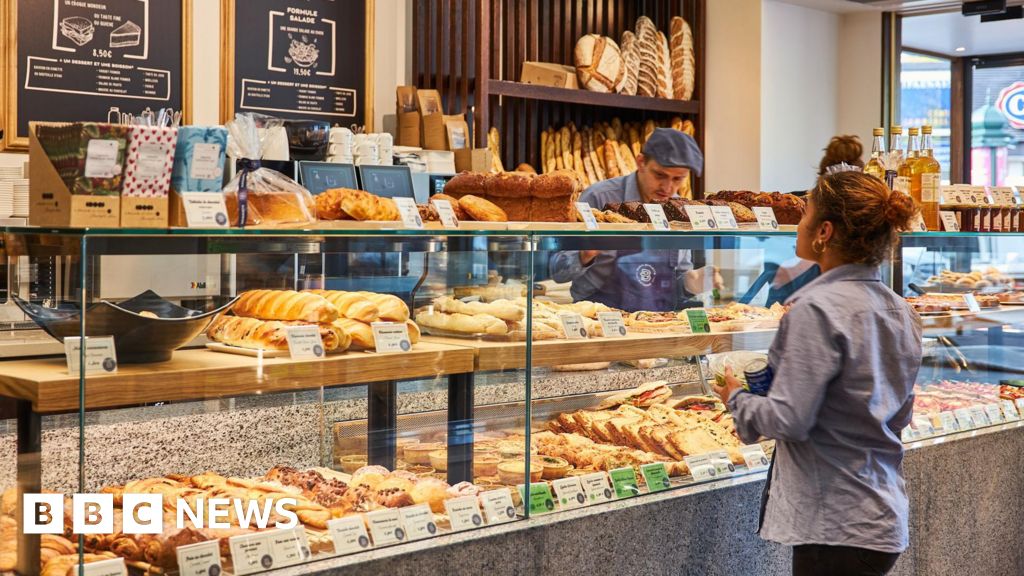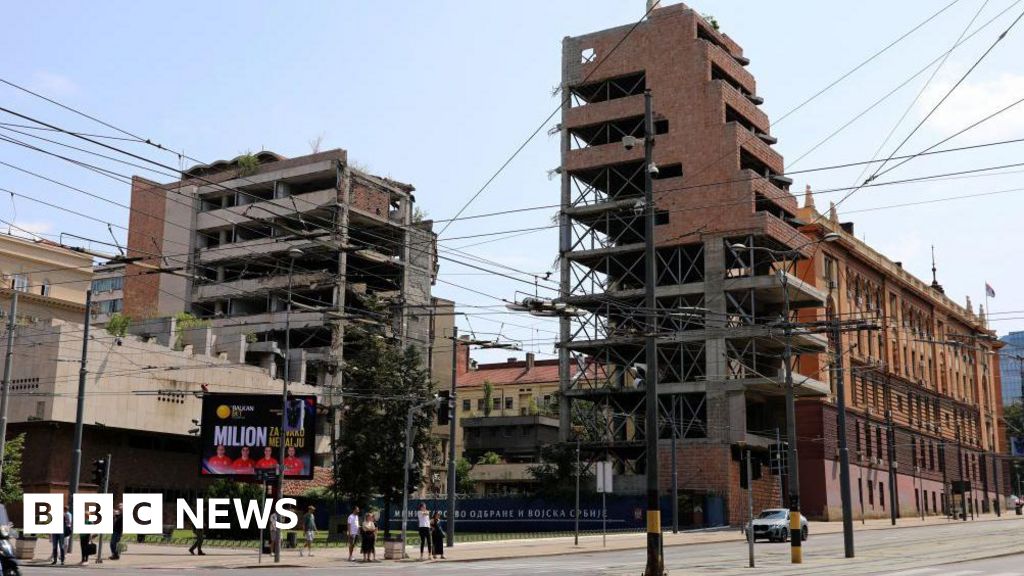ARTICLE AD BOX
By Jonathan Josephs
Business reporter, BBC News
Image source, Reuters
Image caption,Investors want four of the biggest coronavirus vaccine manufacturers to make access fairer
A large coalition of investment firms want the bosses of coronavirus vaccine makers to have their bonuses withheld if they fail to improve product distribution.
This could guarantee a "more equitable" global circulation of the vaccine, said Rogier Krens chief investment officer of Achmea Investment Management.
Drug makers said they are making sure lower income countries have access.
Over nine billion doses have been administered worldwide.
Mr Krens said that the group of 65 companies believes that vaccines are "not distributed fairly at the moment".
Overall, China and India have administered the highest number of doses, with nearly three billion and 1.5 billion respectively.
The US is third, with more than 500 million. Many poorer countries are relying on deliveries from Covax, a scheme led by Gavi, the Vaccine Alliance, together with the WHO and the Coalition for Epidemic Preparedness Innovations (CEPI), which is trying to ensure everyone in the world has access to a Covid vaccine. So far the scheme has distributed more than 900 million vaccines.
"What we're asking the companies to do is to tie their remuneration policy and strategy to a more equitable distribution of the vaccine," Mr Krens explained.
If they don't commit to a fairer distribution, he said the groups first step will be to vote against any remuneration proposals that don't take this into consideration.
Asked if that means trying to withhold bonuses if the concerns aren't addressed, Mr Krens, replied "effectively yes".
Executive pay at vaccine makers should be linked to distribution, says Rogier Krens of Achmea Investment Management
Figures collated by Our World in Data - a collaboration between Oxford University and an educational charity, show that many of the countries with the lowest vaccination rates are lower income African nations such as Burundi, DR Congo and Chad. Meanwhile, those at the top of the list are wealthier countries such as the UAE, Portugal and Brunei.
Last week the head of the World Health Organisation reiterated the importance of vaccines in ending the pandemic. Dr Tedros Adhanom Ghebreyesu warned against "narrow nationalism and vaccine hoarding", and added that if "we end inequity, we end the pandemic".
Global vaccine rollout
Please upgrade your browser to see the full interactive
Global economy threat
A fairer distribution of vaccines makes sense from both a humanitarian and financial perspective, according to Mr Krens.
"We definitely feel it's our responsibility to invest in companies that act in a socially responsible way," he said.
When it comes to the money that the group manages for pension funds and other clients Mr Krens explained that a continuation of the pandemic as it's going now, would be a "threat" to the economy and eventually, a threat to their investment returns.
The massive gap in vaccination rates between advanced economies and poorer nations could cost the global economy $5.3tn over five years according to the International Monetary Fund.
Image source, Reuters
Image caption,Many people are keen to get coronavirus vaccines, such as these who are queuing up in Malta
The group of investors have voiced their concerns in a letter to the boards of Pfizer, Moderna, AstraZeneca and Johnson & Johnson.
In their statement, they highlight the World Health Organisation's roadmap which calls for 70% of the population of every country to be vaccinated by the middle of this year.
What went wrong with vaccinating the world? Three experts explain
Manufacturers under pressure
The roadmap? calls on vaccine manufacturers to be more transparent about production schedules and to prioritise contracts with Covax and Avat which aim to improve the distribution of vaccines in poorer countries.
Vaccines makers said they are doing what they can to ensure that doses are spread out fairly.
AstraZeneca, which has worked with Oxford University on its vaccine, said it is "producing its COVID-19 vaccine for no profit to low income countries and has distributed most of its supply to low and middle income countries."
Johnson & Johnson said that approximately 60% its COVID-19 vaccines have been shipped to low and middle income countries and that fair access to them has been "at the forefront" of its response to the pandemic. It added that its executive pay strategy "is designed to promote long-term, sustainable value creation".
Moderna and Pfizer haven't responded to requests for comment. However last year, in an open letter Pfizer's chief executive Albert Bourla wrote that the biggest restriction on expanding manufacturing was "scarcity of highly specialised raw materials".
Image source, AFP
Image caption,Companies including Pfizer have spent billions developing coronavirus vaccines
Sharing vaccine knowledge
International political efforts to improve vaccine production and distribution through a wavier of intellectual property rights have stalled. Hopes for an agreement at the World Trade Organisation were dented when it's in person Ministerial Conference was abruptly cancelled in late November.
Achmea's Rogier Krens believes that such a sharing of the vaccine manufacturing know-how has an important role to play in improving vaccine distribution.
Although they have largely resisted so far he said: "We're actually calling actively for the pharmaceutical companies to contribute in that area".
He argued that increasing vaccine supply is crucial to getting more people protected from coronavirus.
Mr Krens said that the coalition of investors can bring about change from the drug makers, even if it doesn't happen overnight, because it's size equates to "quite a strong voice".

 3 years ago
45
3 years ago
45









 English (US) ·
English (US) ·